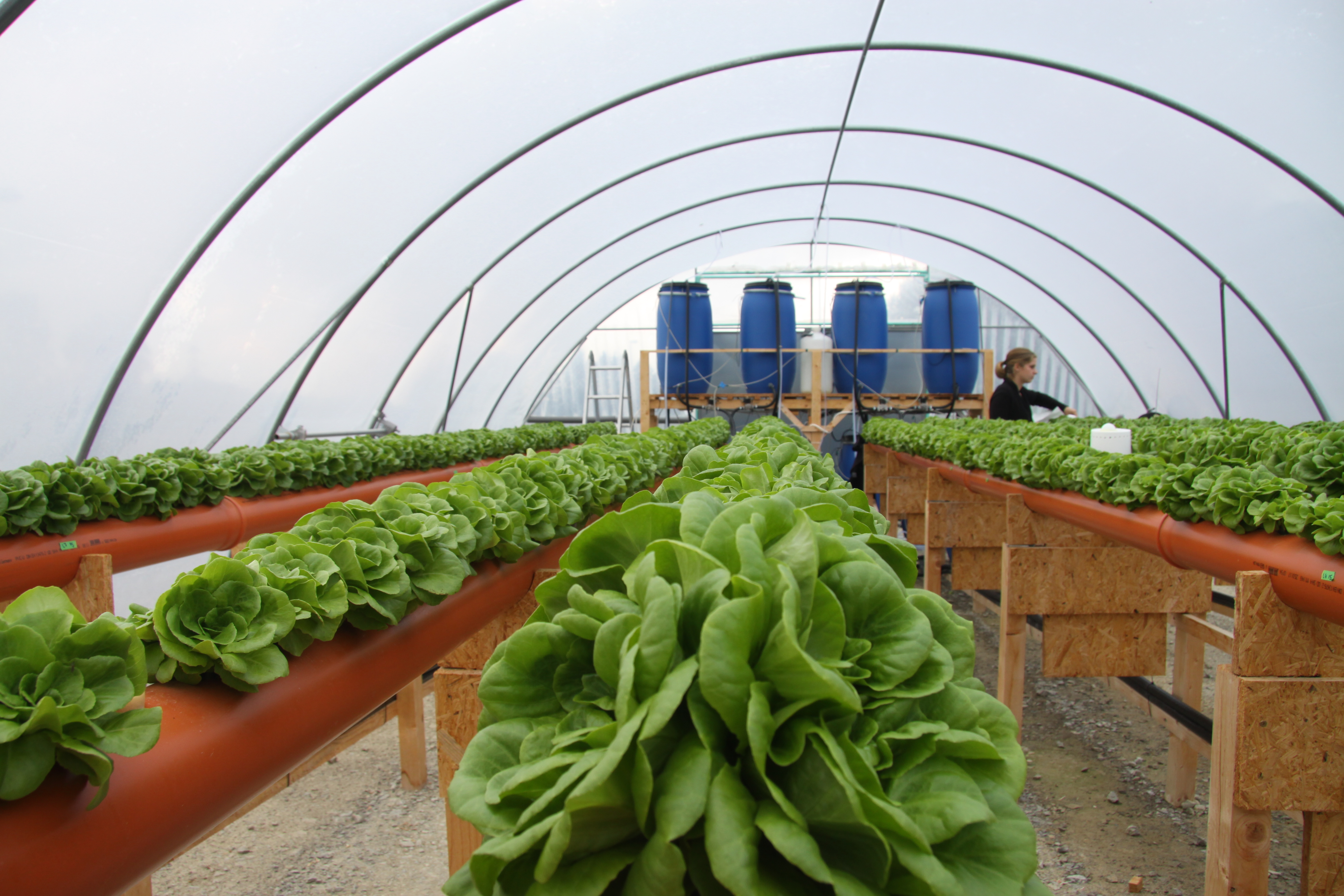Here's the salad: first harvest from treated wastewater in the HypoWave research project
Can lettuce plants only be supplied with purified wastewater and achieve a high-quality harvest? In the "HypoWave" research project, seedlings were planted in a hydroponic process for the first time and supplied with specially treated irrigation water from a sewage treatment plant. The harvest from the previous cultivation shows first good results for the feasibility. Against the background of the high water consumption in agriculture, the project, funded by the Federal Ministry of Education and Research (BMBF), focuses on water-saving plant production.
For this purpose, salad seedlings have been cultivated in a greenhouse on the HypoWave pilot plant near Wolfsburg in a hydroponic process since summer 2017. The seedlings do not need soil in their plant containers, which prevents irrigation water from seeping into the soil and reduces evaporation. This makes hydroponic plant production a water-saving cultivation method. The HypoWave research project aims to further increase the efficiency of this form of cultivation by using specially treated water from municipal wastewater.
The reuse of water not only protects the resource. The nutrients contained in wastewater are also suitable for healthy plant growth. "The first results show that good growth of lettuce plants can be achieved even with low nutrient input," says project manager Thomas Dockhorn from the Institute for Urban Water Management at Braunschweig Technical University. "We were able to provide almost all the necessary nutrients, such as nitrogen and phosphorus, from the wastewater and reduce unwanted substances". In terms of efficient nutrient use, this is a good result.
Water reuse in agriculture conserves resources
In the coming vegetation period, the system is to be further optimised by technical adjustments to the wastewater treatment stages. In addition, the analyses of possible organic trace substances and microbiological examinations of germ contamination will be continued. The interdisciplinary research team will also deal with the question of how water resources can be used efficiently in this form of management. "By using wastewater and avoiding water losses due to seepage and evaporation, we can reduce the pressure on the resource in two ways," says Thomas Dockhorn. This is not insignificant in view of the global water consumption in agriculture, which is up to 70 percent.
Another focus of the research project is the preparation for practical application. In times of climate change and increasing water scarcity, new, resource-saving production processes are becoming attractive worldwide. "However, a technical innovation alone cannot survive without the necessary framework conditions and without new business models," says project coordinator Martina Winker of the ISOE - Institute for Social-Ecological Research in Frankfurt. "We are therefore already developing sustainable forms of cooperation between water management and agriculture for this special variant of plant production during the course of the project". To transfer the concept, case studies will be carried out in Germany, Belgium and Portugal.
 Fraunhofer Institute for Interfacial Engineering and Biotechnology IGB
Fraunhofer Institute for Interfacial Engineering and Biotechnology IGB